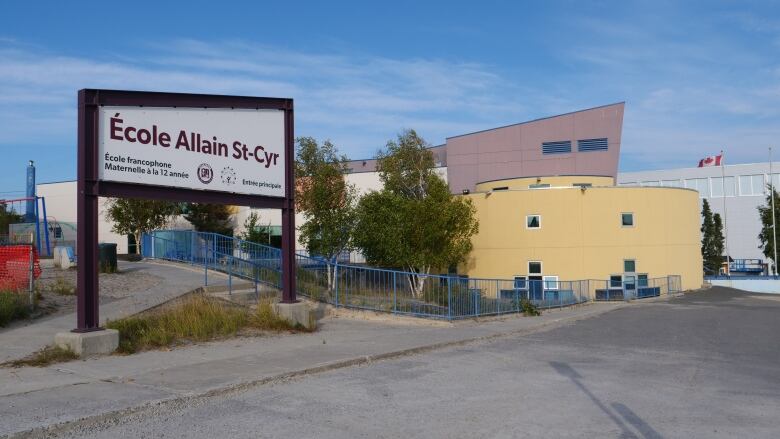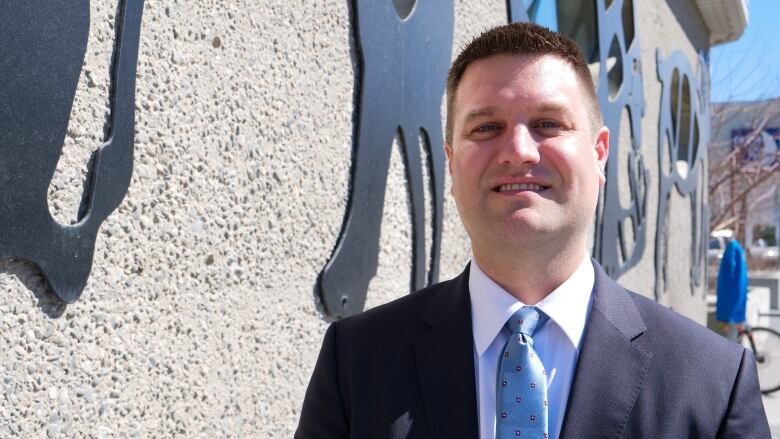Yellowknife mother fights in court to get her child admitted to French school
N.W.T. Department of Education decides which non-rights holders can be admitted to French school

A Yellowknife mother has teamed up withthe French school boardto take the N.W.T. education minister's refusal to admit achild in Yellowknife's French school tocourt.
In their application for judicial review, the applicants argue Education Minister CarolineCochranemisused her discretion by refusing that the child, born in Canada from new immigrants and non-rights holder parents, be enrolled in cole Allain St-Cyr last fall.
A "rights holder" is a person who has a constitutional right to minority language school, under section 23 of the Canadian Charter of Rights and Freedoms.
In the territory, the government has power to decidewhich non-rights holderscan attend the N.W.T.'s two French schools. It's apower hotly contested by the Commission scolaire francophone des Territoires du Nord-Ouest,whichargues it restricts the growth of the French schools and community.
In 2016, the minister atthe time issued a ministerial directive to establish criteria governing the eligibility of non-rights holder parents.
According to Cochrane's decision, the child was refused registration because he doesnot meet the criteria of a new immigrant under the directive, which statesa child can be eligible if "the parent is an immigrant to Canada, whose child upon arrival, does not speak English or French and is enroling in a Canadian school for the first time."
2 interpretations of criteria
The crux of the case is over the interpretation of that criteria. One interpretation saysthe child should be eligible because his parents are newcomers, while the other defends the decision of the minister who believes that since the child was born in Canada and speaks English, he doesnot qualify.
Both parties agreethe minister can use discretion in her decision making. The point of contention, however,is who deserves to be an exception.

Counsel for the department believesonly unique and specific cases should be allowed through ministerial discretion. He does not believe that the case before the court meets this definition.
According to him,widening the criteria of what is a unique and specific case will lead toa much higher number of children who would be admitted to the French-language schools, and thiswould counteract the directive's goal to limit the admission of non-rights holders.
Counsel for the mother and the school board, Francis Poulin, opposes these arguments and believes that even though the parents don't speak French, there is no more worthy case than that of the family he represents.
"The family has demonstrated a serious commitment, sustained over a long period of time, to the Francophonie," he said.
"The mother became part of the Franco-Tnoise community, took part in community activities and took classes to learn French. The child went to daycare in French for two years and is fully operational in French. There was no good reason to refuse this admission."
Decision expected before start of 2019-20 school year
After he heard both parties on Thursday, N.W.T. Supreme Court Justice Paul Rouleau will make his decision.
If the applicants are successful, the judge will return the admission file to the minister's office with notes for reassessment. This would still not guarantee that the child be admitted to the francophone school.
Rouleau says he hopes to make a judgment before the start of the 2019-20 school year.
In the meantime, the French school board plans to reopen the debate with the territorial government in the hopes of gettingbroader rules of admission after the October territorial election.












_(720p).jpg)


 OFFICIAL HD MUSIC VIDEO.jpg)
.jpg)



























































































